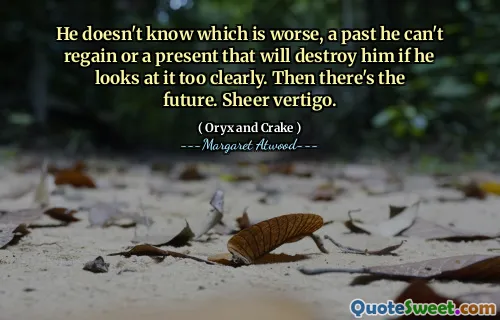I love you. You're the only one. She isn't the first woman he's ever said that to. He shouldn't have used it up so much earlier in his life, he shouldn't have treated it like a tool, a wedge, a key to open women. By the time he got around to meaning it, the words had sounded fraudulent to him and he'd been ashamed to pronounce them.
In Margaret Atwood's "Oryx and Crake," the protagonist reflects on the implications of saying "I love you." He realizes that this phrase, which holds deep meaning, has been carelessly used in the past, reducing its significance. The romantic expression becomes a tool for manipulation, leading to a situation where, when he genuinely means it, the words feel hollow to him.
This realization evokes a sense of regret and shame in him. He acknowledges that his earlier relationships lacked sincerity, making it difficult for him to express true feelings later on without feeling fraudulent. This commentary on love emphasizes the importance of authenticity and the consequences of overusing such a vital phrase.






